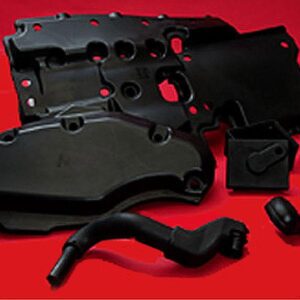 Manufacturers are constantly seeking ways to reduce costs without sacrificing quality. One of the most effective strategies is rethinking traditional materials and assembly processes—opting for innovative solutions like custom molded polyurethane foam. By replacing rigid components with flexible, high-performance foam, manufacturers can eliminate fasteners, streamline assembly, and enhance product durability, leading to significant cost savings.
Manufacturers are constantly seeking ways to reduce costs without sacrificing quality. One of the most effective strategies is rethinking traditional materials and assembly processes—opting for innovative solutions like custom molded polyurethane foam. By replacing rigid components with flexible, high-performance foam, manufacturers can eliminate fasteners, streamline assembly, and enhance product durability, leading to significant cost savings.
Eliminating Fasteners and Reducing Part Count
Fasteners—screws, bolts, clips, and adhesives—add complexity and cost to manufacturing. Each additional part increases:
- Material expenses (purchasing and inventory management)
- Labor costs (assembly time and potential errors)
- Supply chain dependencies (vendor lead times and price fluctuations)
Molded polyurethane foam simplifies designs by integrating multiple functions into a single component. Unlike flat die-cut foam, custom-molded foam can be shaped to fit exact specifications and configurations, eliminating the need for secondary fastening systems. For example:
- Gaskets and seals are replaced by molded foam, reducing the need for separate adhesive layers.
- Designed-in isolation can replace metal brackets and rubber isolators.
- Thermal shields can be integrated into the molded foam part, which itself is a thermal insulator, eliminating the need for installing extra thermal protective layers on the assembly line.
By reducing part count, manufacturers cut material costs, simplify logistics, and minimize assembly errors—leading to faster production and lower overhead.
Streamlining Assembly Processes
Traditional assembly often involves multiple steps: aligning parts, applying adhesives, securing fasteners, and inspecting for defects. Each step adds time and potential failure points.
Molded foam solutions consolidate these processes by:
- Snap-fitting or compression-fit into place without additional hardware.
- Conforming to complex geometries, reducing part failure possibilities and assembly time.
- Absorbing tolerances, given its flexibility, allowing for slight variations in mating parts.
For instance, a polyurethane foam engine compartment liner can be designed to press-fit into place, eliminating the need for clips or screws. This speeds up assembly and reduces the risk of loose components causing noise or failure over time.
Improving Product Longevity and Reducing Warranty Costs
One of the hidden costs in manufacturing is product failure due to vibration, thermal stress, or wear and tear. Poor energy management leads to:
Increased warranty claims from premature part failure.
- Increased warranty claims from premature part failure.
- Higher maintenance costs due to component fatigue.
- Customer dissatisfaction from noise or performance issues.
Polyurethane foam enhances product lifespan by:
- Absorbing vibrations that would otherwise loosen fasteners or crack rigid parts.
- Providing thermal insulation, preventing heat-related degradation.
- Resisting abrasion and fatigue, especially in high-density, self-skinning foams.
For example, POLYFORM® High-Density Molded Foam (PHDM-IS) offers excellent tear strength and low water absorption, making it ideal for automotive and industrial applications where durability is critical.
A Cost-Effective Solution for Modern Manufacturing
Switching to custom molded polyurethane foam isn’t just about material substitution—it’s a strategic cost-saving measure. By:
- Eliminating fasteners and reducing part count
- Simplifying assembly and cutting labor time
- Enhancing product durability and reducing warranty costs
Manufacturers can achieve lower production costs, higher efficiency, and superior product performance.
Partner with Us for Custom Foam Solutions
At Polymer Technologies, we specialize in custom-molded polyurethane foam designed to solve noise, vibration, and thermal challenges at the source. Our formulations are engineered to meet your exact needs. Ready to reduce costs and improve your product design? Contact us today to discuss your project!


